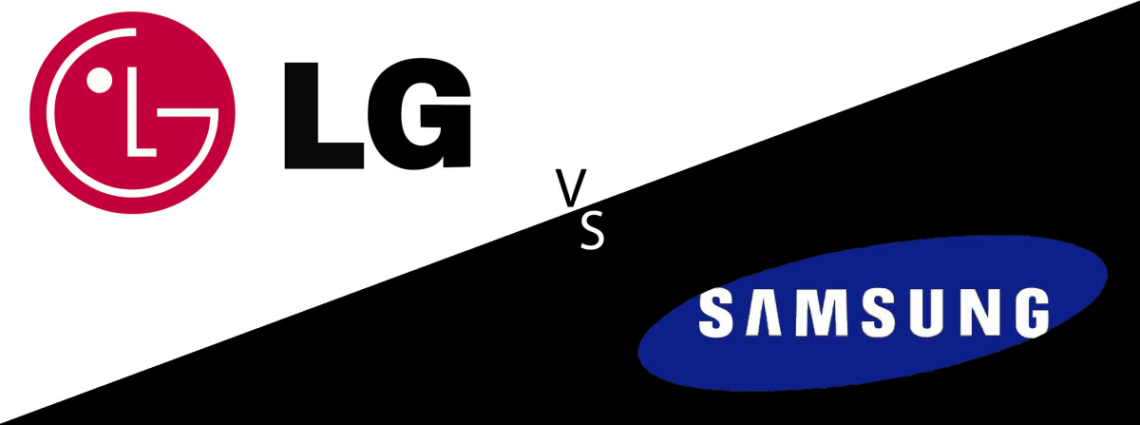In the realm of consumer electronics, LG and Samsung are two heavyweight contenders. Both brands offer a wide array of products, from smartphones to appliances, that have carved their place in the market. At first glance, you might wonder, “Are LG and Samsung the same?”
In this guide, we’ll embark on a journey to unravel the distinctions between these tech giants, helping you make informed decisions when choosing between their products.
Company Background
Before diving into the specifics, let’s understand the backgrounds of LG and Samsung.
LG Corporation
LG Corporation, formerly known as Lucky-Goldstar, is a South Korean conglomerate founded in 1947. Over the decades, LG has diversified into various industries, including electronics, chemicals, and telecommunications. LG Electronics, a subsidiary, is renowned for its innovative consumer electronics, home appliances, and mobile devices.
Samsung Group
Samsung Group, established in 1938, is another South Korean conglomerate, and it’s one of the world’s largest. Samsung is involved in various sectors, such as electronics, shipbuilding, construction, and more. Samsung Electronics, its subsidiary, is globally recognized for its cutting-edge technology, spanning smartphones, TVs, and home appliances.
Product Range
Now, let’s explore the diverse product offerings from LG and Samsung.
LG’s Product Lineup
LG offers an extensive range of consumer electronics, including:
- Smartphones: LG’s smartphones, like the LG G and LG V series, have garnered attention for their unique features, including dual screens and exceptional camera capabilities;
- Home Appliances: LG produces a wide array of home appliances, from refrigerators and washing machines to air conditioners and OLED TVs, known for their picture quality.
Samsung’s Product Lineup
Samsung, on the other hand, boasts a comprehensive product portfolio, including:
- Smartphones: Samsung’s Galaxy series, including the Galaxy S and Galaxy Note, has been a dominant force in the smartphone market, offering innovative designs and cutting-edge technology;
- Home Appliances: Samsung manufactures a wide range of home appliances, such as refrigerators, washing machines, and smart TVs, often incorporating advanced features like AI and IoT connectivity.
Technological Innovations
LG and Samsung are known for their technological advancements, and each has unique innovations.
LG has introduced several groundbreaking technologies, such as:
- OLED Displays: LG’s OLED TVs are renowned for their vibrant colors, infinite contrast ratios, and thin profiles, revolutionizing the television industry;
- Dual Screen Smartphones: LG pioneered dual-screen smartphones, allowing users to multitask efficiently and enhancing productivity.
Samsung has also made significant strides in technology, including:
- QLED TVs: Samsung’s QLED TVs deliver impressive picture quality with Quantum Dot technology, offering bright and vivid displays;
- Foldable Smartphones: Samsung’s Galaxy Z Fold and Galaxy Z Flip series have redefined smartphone design with foldable screens, providing new possibilities for multitasking.
Technical Characteristics Comparison
To gain a deeper understanding of the differences between LG and Samsung, let’s delve into a detailed comparison of their technical characteristics across various product categories.
Smartphones
LG smartphones have been recognized for their unique features, including:
- Dual Screen Technology: LG introduced dual-screen smartphones like the LG Velvet Dual Screen and LG V60 ThinQ, providing multitasking capabilities and enhanced productivity;
- High-Quality Audio: LG devices often feature high-fidelity audio experiences with Quad DAC (Digital-to-Analog Converter) technology, appealing to audiophiles.
Samsung’s Galaxy series of smartphones have dominated the market with:
- Innovative Displays: Samsung offers curved edge displays, AMOLED technology, and vibrant colors on devices like the Galaxy S21 and Note series, providing stunning visuals;
- S Pen Integration: The Galaxy Note series incorporates the S Pen, enabling precise stylus input, ideal for productivity and creativity.
Televisions
LG has made its mark with cutting-edge OLED TVs:
- OLED Technology: LG’s OLED TVs deliver pixel-level illumination, resulting in perfect black levels and stunning contrast ratios;
- NanoCell Technology: LG also offers NanoCell LCD TVs, which utilize nanoparticles to enhance color accuracy and viewing angles.
Samsung’s television offerings come with their own set of features:
- QLED Technology: Samsung’s QLED TVs use Quantum Dot technology, delivering bright and colorful displays with impressive HDR performance.
- The Frame Series: Samsung’s The Frame series is known for its unique design, transforming the TV into a piece of art when not in use.
Home Appliances
LG’s home appliances feature innovative technologies:
- InstaView Refrigerators: LG’s InstaView refrigerators have a transparent glass panel that allows you to see inside without opening the door, reducing cold air loss;
- ThinQ AI: Many LG appliances are equipped with ThinQ AI, enabling remote control and monitoring via smartphones.
Samsung’s home appliances also showcase modern advancements:
- Family Hub Refrigerators: Samsung’s Family Hub refrigerators have a touchscreen that serves as a digital bulletin board and entertainment center;
- SmartThings Integration: Samsung’s appliances often integrate with SmartThings, enabling seamless home automation and control.
Washing Machines: LG vs. Samsung in the Laundry Appliance Category
LG’s washing machines boast features like:
- Direct Drive Technology: LG’s direct drive motors offer reduced noise, enhanced durability, and energy efficiency;
- TurboWash Technology: LG’s TurboWash technology ensures faster and more efficient washing.
Samsung: Samsung’s washing machines come with their own set of innovations:
- Ecobubble Technology: Samsung’s Ecobubble technology mixes air, water, and detergent to create bubbles that penetrate fabric quickly and effectively;
- AddWash Feature: Some Samsung machines have an AddWash door, allowing you to add forgotten laundry items even during a wash cycle.
Conclusion
In the world of consumer electronics and home appliances, LG and Samsung stand as formidable competitors, each offering unique technological characteristics and innovations. As you consider products from these tech giants, it’s essential to weigh these technical differences against your specific needs and preferences.
Whether you’re in search of a smartphone with cutting-edge features, a TV with breathtaking visuals, or home appliances that simplify your life, understanding the technical distinctions between LG and Samsung will empower you to make informed decisions and enhance your tech-driven lifestyle.

